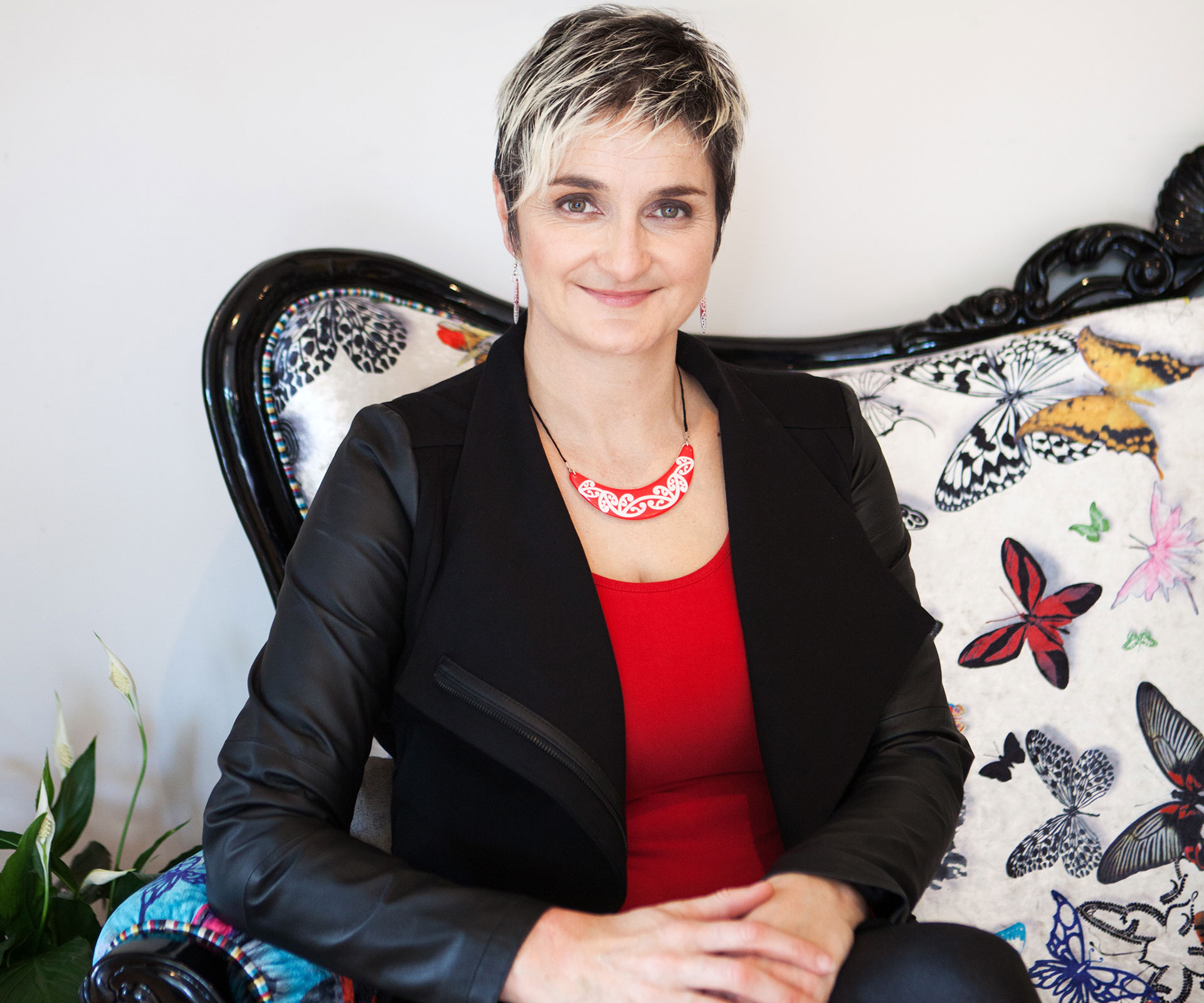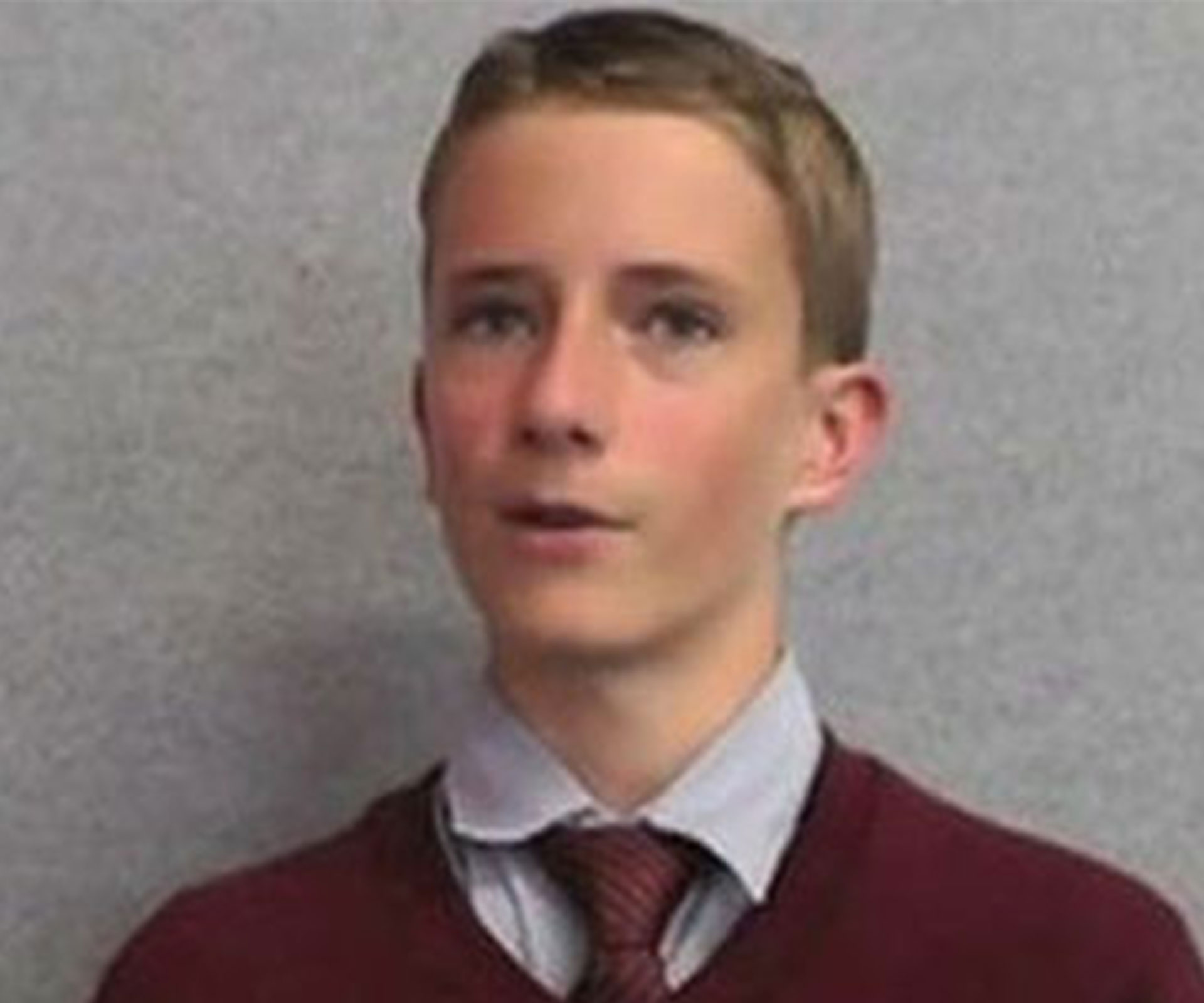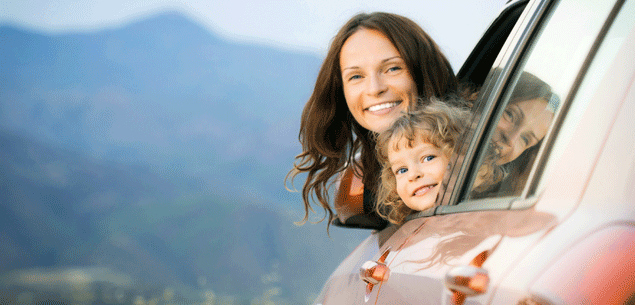“This series of articles is about women who inspire me. Some of them I have known for some time, others I have admired from a distance over the years. All of them share the same characteristics. They are warm, kind, courageous, fun-loving people. They are generous of spirit and they are supportive of other women.” -Judy Bailey
When she set off on her first day at school, Hana O’Regan’s older sister Miria had some sage advice.
“Don’t tell them you’re Maori,” Miria warned. Hana, the daughter of the esteemed Ngai Tahu treaty negotiator Sir Tipene O’Regan, is quite fair, like her Pakeha mother, Sandra. By age five she already had a proud sense of her Maori heritage, so Miria’s words were confusing. But it turns out it was a sound suggestion. “Being Maori was hard work in 1970s New Zealand,” Hana tells me.
Now 42, Hana is director of Maori and Pacific studies at Christchurch Polytechnic Institute of Technology, and a passionate advocate for the Maori language. I first met her when she delivered a blistering presentation on the effects of colonisation on Maori at a hui for the Brainwave Trust, on which I am a trustee. The hui had been organised by her partner, Nathan Mikaere-Wallis, who was on the trust at the time. They make a formidable couple, both driven by a powerful sense of social justice.
“What are the common stereotypes about Maori?” Hana asked us. There was a moment’s silence while we wondered how honest she wanted us to be. And then out they came. “Great at the haka, wonderful voices, beautiful culture… not really academic achievers, child abusers, neglectful, drug takers, gang members, unmotivated.”
“How do you think our young people feel when they hear those stereotypes and live with them every day of their lives?” she demanded. Her words stuck with me. Born and raised in Wellington, Hana has always been fiercely proud of being Maori. When she was six, she had a horrific accident with a skill saw, severing her right hand. Rushed to hospital, she was in theatre for many hours, and made history as the first-ever patient to have a severed limb reattached by Kiwi doctors.
When she awoke from the anaesthetic she was mortified. “I’m sure I’ve lost my Maori blood,” she wailed to her parents. “People say I’ve got as much Maori in me as my little toe; if it’s gone, how do you get it back?” Even then her Maori identity was vitally important.
Hana and I are relaxing in the cosy kitchen of one of her oldest mates. She’s left her hometown of Christchurch to come to Auckland to speak at a Maori language workshop. It’s been a long day and she’s tired, but the words flow freely, almost as if it’s cathartic to talk about her often challenging life.
She tells me she has always battled poor self-esteem. Perceived by many as too white to be Maori, but too Maori to be Pakeha, she always felt she didn’t quite fit in.
It was soon after her accident that Te Aue Davis came into her life. The Ngati Maniapoto kuia, a friend of her parents, moved into the O’Regan household and began to assume responsibility for Hana’s upbringing.
There was an immediate connection between the two; it became a sort of unofficial ‘whangai’ or adoption relationship.
Te Aue was both a master weaver and a master of the Maori language, committed to passing her knowledge on to a new generation. They travelled the length of the country together, the shy white girl clinging to the petticoat of the strong Maori woman. “She taught me the importance of connecting with people and working in the community.”
When she was growing up, Hana’s father was immersed in the Ngai Tahu claim. Politicians from both sides of the house were frequent dinner guests. “I heard those conversations in my formative years and inherited an impassioned sense of injustice,” she says, fixing me with an intent look that leaves me in no doubt about her passion.
Tipene’s work also attracted a fair amount of abuse from Maori as well as Pakeha, both at Hana’s boarding school and at home. “There was hate mail, death threats, even faeces in the letterbox,” she recalls. “We certainly got to see a different side of the ‘harmonious’ New Zealand race relations others like to talk about.”

“In my formative years I inherited an impassioned sense of injustice.”
It was while she was studying at university that Hana found herself in an abusive relationship. He was her first real boyfriend, and was controlling and violent. “He didn’t know who my dad was, that’s why I fell for him,” she admits with a wry smile.
Then at 23 she was diagnosed with severe endometriosis – and believed she would never be able to have children. The pain of the condition combined with this grim prognosis just added to her negative sense of self. “I don’t think I’m thick or useless, but I struggle with this fear of failure,” she says sadly. “It’s taken a long time to become confident in myself and not fall into victim mode.”
When Hana was 28, she met someone and, incredibly, became pregnant. When the baby was just three months old, she conceived again. Having expected to be childless, she calls daughter Manuhaea, now 12, and son Te Rautawhiri, 11, her two ‘miracle babies’. She stayed with their father for nine years before ending the relationship in 2011. “I’ve now found someone who is genuinely excited to see me succeed,” she says warmly of Nathan. “There is no competition between us, we work together.”
Mindful of her own battles with self-esteem, and hugely aware of what she calls her “privileged existence”, Hana is dedicated to instilling in others a sense of pride in their language and culture, while also challenging the stereotypes.
“You need to commit to something bigger than yourself,” she says with feeling. “Life has to have a purpose, it can’t be just about you.”
One of the bigger issues Hana has been working on recently is our national identity. She is a member of the Flag Consideration Panel, a role she is relishing. “I think New Zealand is the first country in the world to allow people to engage in a discussion about what the flag should represent,” she says, adding that she sees it as a great opportunity to have a wider debate about the things that are important to us all.
Race relations are clearly of central importance to Hana. I ask her how she sees them in New Zealand in 2015.
“I think we’re in denial, driven by the propaganda of the past to believe everyone has equal opportunity, and that it’s Maori’s own fault they’re in the situation they’re in,” she says passionately. “There is a misconception that for many there is a choice – but if you’re beaten and have suffered generations of trauma and neglect, then it’s too simplistic to say you have a choice. It just doesn’t work like that.”
It is Hana’s mission to paint a picture that shows Maori are so much more than the stereotypes. And seeing the fire in her eyes, it’s clear she won’t let anything stand in her way.
Words by Judy Bailey
Photos by Tessa Burrows
Hair and Make-up by Brae Toia


